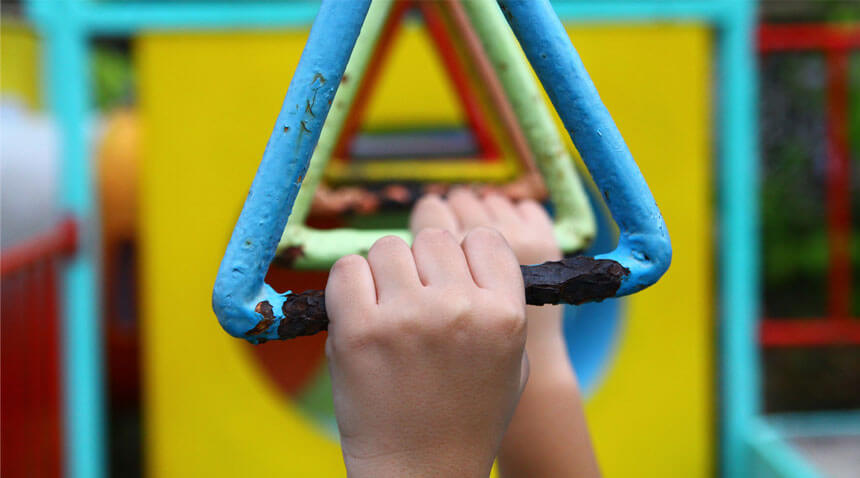

Behaviour & Learning
Behavioral issues can happen in children of all ages. One of the biggest challenges parents face is managing difficult or defiant behavior on the part of children. While the conventional treatment is restricted in many aspects, early diagnosis and individualized homeopathic treatment can make a big difference in the disease prognosis.
Is there anything worrying you about your child's behavior and academic performances, don't wait then; Have a meeting with your child's teacher as a preliminary step and understand the problems. It could be Behavior and Learning Disabilities (BLD).
Behavioral issues can happen in children of all ages. One of the biggest challenges parents face is managing difficult or defiant behavior on the part of children. It's nothing to worry about when children throw some temper tantrums occasionally.
If your child is doing things in a more aggressive ways and out of normal ways, causing a lot of distress to other kids, families, school and communities around. Your child may have an attention, disruptive disorder, psychosocial disorders, habit disorders, anxiety disorders or sleeping problems, and, needs professional help.
Attention deficit hyperactivity disorder (ADHD)
Oppositional defiant disorder (ODD)
Autism spectrum disorder (ASD)
Anxiety disorder
Depression
Bipolar disorder
Learning disorders
Conduct disorders
Attention deficit hyperactivity disorder (ADHD)
Does your kid doing things inattentively? Does your kid acting on an impulse, without much thinking? Does your child doing things at a restless manner, without finishing anything s/he was doing? If so, your child may have attention deficit hyperactivity disorder (ADHD). Nearly everyone shows some of these behaviors at times, but ADHD lasts more than 6 months and causes problems in school, at home and in social situations.
ADHD, the most commonly diagnosed psychiatric disorder of children, includes a combination of persistent problems, such as inattention, hyperactivity and impulsivity.
There are three subtypes of ADHD:
Predominantly inattentive - The majority of symptoms fall under inattention.
Predominantly hyperactive-impulsive - The majority of symptoms are hyperactive and impulsive.
Combined - Mix of inattentive symptoms and hyperactive-impulsive symptoms.
ADHD doesn't cause any other psychological or developmental problems, however other behavioral problems can co-exist.
In a recent randomized, double blind, placebo controlled crossover trial, it suggests scientific evidence of the effectiveness of homeopathy in the treatment of attention deficit hyperactivity disorder, particularly in the areas of behavioral and cognitive functions.
Many parents of ADHD children turn into homeopathic treatment as it offers promising and steady improvements.
Homeopathy is much effective in reducing symptoms significantly along with improving concentration.
Autism spectrum disorder (ASD)
Autism spectrum disorder (ASD) is a neurological and developmental disorder that includes conditions that were previously considered separate such as autism, Asperger's syndrome, childhood disintegrative disorder and an unspecified form of pervasive developmental disorder.
ASD refers to range of conditions characterized by challenges with social skills, repetitive behaviors, speech and nonverbal communication, as well as by unique strengths and differences.
The causes are not clear. Researches show that both genes and environment play important roles.
Signs and symptoms:
People with ASD tend to have problems with social interaction and communication.
Begins early in childhood and lasts throughout a person's life.
Most often the symptoms appears in the first year of life while a small percent of children develop normally in the first year, and then go through a period of regression between 18 and 24 months of age when they develop autism symptoms.
Early signs include reduced eye contact, lack of response to their name by the age of 12 months. Since each child with ASD shows unique symptoms, it's difficult to determine the level of severity.
May have restricted, repetitive patterns of behavior or activities, including any of these signs:
Repetitive movements, such as Flapping their hands, rocking their body, or spin in circles
Activities that could cause self-harm, such as biting or head-banging
Children lack awareness off and interest in other children and tend to play alone
Social communication / Interaction behaviors:
Not respond to their name by 12 months of age
Avoid eye contact and want to be alone
Find difficult to understanding other's feelings and emotions or unaware of their own feelings
Delayed speech and language skills; some children tend to repeat words or phrases spoken by others (either immediately or later) without formulating their own language, or in parallel to developing their language skills.
Repeat words or phrases over and over (echolalia)
Some children don't engage in imaginative or pretend play, while others will continually repeat it.
Doesn't understand simple questions and answers unrelated to the questions asked.
Have obsessive interests and highly sensitive to minor changes
Responding in an unusual way when others show anger, distress, or affection
Some features of ASD may not become noticeable until a change of situation, such as when the child starts nursery or school.
As they mature, some children with autism spectrum disorder become more engaged with others and show fewer disturbances in behavior.
Autism spectrum disorders are being diagnosed with increasing frequency. While there is no cure for autism spectrum disorder, early diagnosis and intervention along with homeopathic treatment can make big difference.
Learning disorders (LD)
A learning disorder is a disorder that affects a person's ability to acquire and use academic skills, such as reading and calculating, with an intact intelligence.
LDs can make it hard for a child to read, write or do simple math.
Learning disorders threatens the affected child's quality of life at various levels including educational, social and emotional development. And also it can affect child's self-esteem and motivation.
The extent of their impact and the areas of learning they affect vary greatly from person to person; combine in any variety of ways; and vary depending on context.
The most common learning disorders include:
Dyslexia - Difficulty reading, spelling and recalling known words.
Dyscalculia - Difficulty solving even simple math problems or sequencing information or events.
Nonverbal learning disability - Difficulty with nonverbal cues, such as coordination and body language.
Dysgraphia - Difficulty with handwriting, spelling, and thinking and writing at the same time.
More than one learning disorder can be present in some children.
Helping a child and family to recognize and manage a learning disability as early as possible is an important part.
LDs and their effects are different from person to person, so a person's pattern of learning disabilities needs to be understood in order to find good, effective strategies for compensation.
Effective individualized homeopathic treatment is of great help for any child diagnosed with learning disabilities (LD) and may enjoy their studies as any other normal kids.
